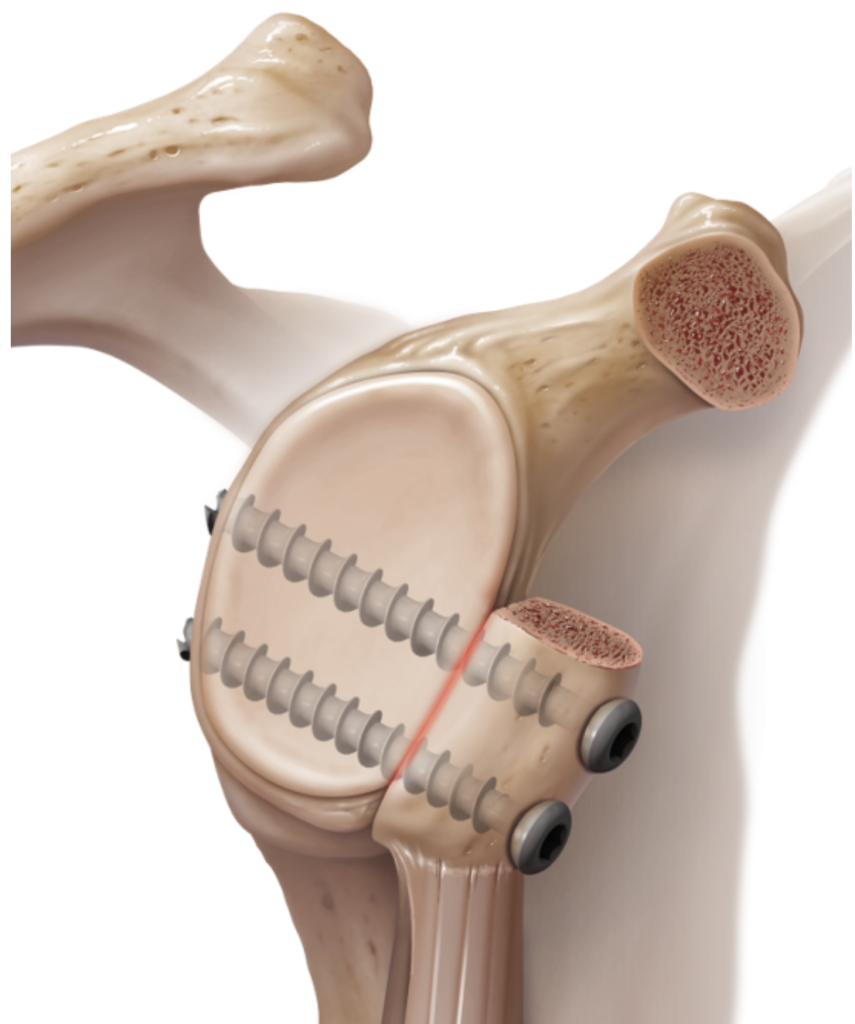The best treatment options for recurrent shoulder dislocation are evolving. In a previous blog, I mentioned growing evidence that early surgery for shoulder instability leads to better outcomes.
A French surgeon1 developed the “Instability severity index score” to assist in determining the most appropriate operation for a given patient. The factors that help guide the surgeon are patient age, degree of sports participation (i.e. competitive versus recreational), type of sport (mainly whether it is a contact sport or an overhead sport), the presence of “ligament laxity”, and various changes seen on X-ray). Like many scoring systems in orthopaedic surgery, it provides a guide, but treatment must be individualised to a person’s unique circumstances. However, it suggests that patients with a high score have an increased incidence of shoulder re-dislocation after arthroscopic surgery. Therefore, they may benefit from open surgery in the form of a bone grafting operation, the so-called Latarjet procedure.
A recent study published by surgeons from Finland2 came up with the same conclusion. They looked at a group of young males, who traditionally have the highest rate of recurrent shoulder dislocation. The patients had the traditional arthroscopic stabilisation procedure or an open Latarjet operation. The patients were followed up for two years, and those with the open method had a significantly lower chance of redislocations.
As with all treatment options, the risks and benefits of surgery need to be discussed in detail before deciding the correct operation for you.
- F. Balg and P. Boileau. The instability severity index score. A simple pre-operative score to select patients for arthroscopic or open shoulder stabilisation. JBJS (Br) 2007 Nov; 89(11): 1470-7
- J. Kukkonen et al. Arthroscopic Bankart versus open Latarjet as a primary operative treatment for traumatic anteroinferior instability in young males. Br J Sports Med 2021;0: 1-7
For information on how to book a consultation, please visit our Appointments page or get in touch with us.


